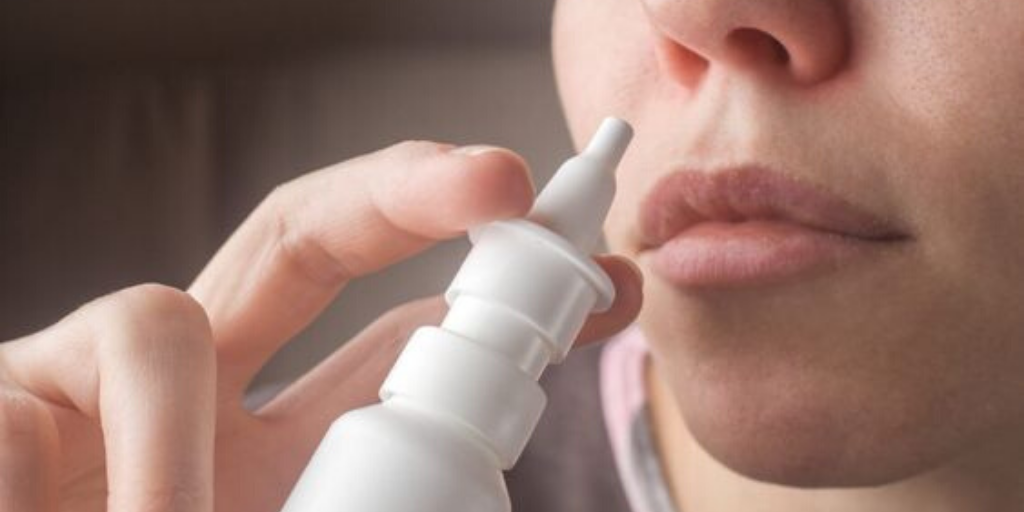Nasal sprays are often used to soothe symptoms caused by a sinus infection or acute sinusitis. Symptoms of a sinus infection can include inflammation in the nose, congestion, postnasal drip, runny nose with green or yellow mucus, cough, sinus pain and more. There are four main types of nasal sprays: corticosteroids, nasal decongestants, sodium chloride, and cromolyn sodium.
Corticosteroid and sodium chloride nasal sprays are used to help soothe allergy symptoms such as a stuffy nose. Nasal decongestants relieve nasal congestion in the upper respiratory tract. Cromolyn sodium is an anti-inflammatory medication helpful in treating sinus infections caused by allergies. One of our allergists can determine which spray will best treat your symptoms.
Do Nasal Sprays Treat Sinus Infection?
Treating a sinus infection means unblocking and draining the sinuses. Corticosteroid nasal sprays such as Flonase and Nasacort are the best source for treatment because they help reduce swelling in the nasal passages. It’s best to keep the nasal passages clear because nasal congestion can block the drainage of your middle ear space, causing an ear infection.
Most sinus infections can be treated with nasal sprays and antibiotics. Sometimes your doctors may add oral medications as well. If you have recurring sinus infections, you should see one of Allergist/Immunologists to see if you have allergies or if you have a defect in your immune system that is predisposing you to sinus infections. Your doctor may also want to do in-office imaging of your sinuses to see if you have a structural issue that is affecting your sinuses, leading to chronic sinusitis or recurrent sinusitis. In rare cases, you may need surgery to treat recurring sinus infections. One of our allergists will determine your course of treatment. If they determine you need surgery, they will recommend an experienced ENT specialist near you.
How Does a Nasal Spray Clear Nasal Congestion?
Nasal sprays help drainage of mucus from your nasal passages. The topical steroids can also decrease the inflammation of your blood vessels and help empty fluids from your nose. That’s why they are commonly used to help treat sinus infection symptoms. All nasal sprays do not work the same way. Some of these nasal sprays can be addictive and with regular use of these sprays, you’ll need increasing dosages to relieve your stuffiness. So, it’s important to use nasal sprays as instructed by our allergists to minimize side effects.
Side Effects of Nasal Sprays
Along with rebound congestion and epistaxis (bloody nose), nasal sprays can cause other side effects such as:
- Burning
- Increased mucus
- Dryness in the nose
- Sneezing
- Nausea
If you experience any of these side effects after using a nasal spray, we recommend discontinuing use of them. Then, visit one of our Board-Certified Allergists for a new treatment plan. We believe in same-day treatments to get you feeling better fast.
Meet the Physician Collaborator
Dr. Morris Nejat is an allergist and immunologist that specializes in hay fever, asthma, sinusitis, and food allergies. He is board-certified with the American Board of Allergy and Immunology and the American Board of Pediatrics. You can schedule an appointment with Dr. Nejat by calling 212-686-4448 or book an appointment online.

